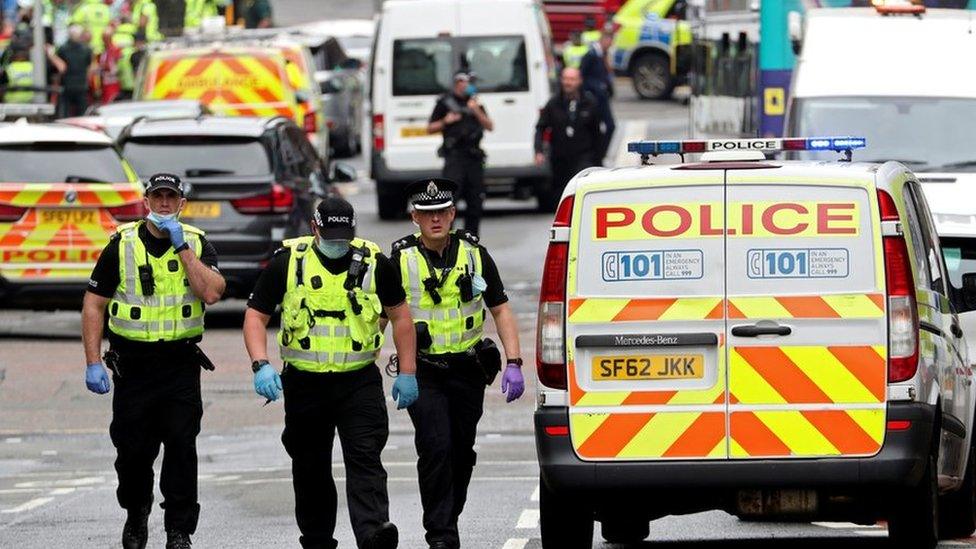Asylum inquiry: Hotel knife attack was 'avoidable tragedy'
- Published
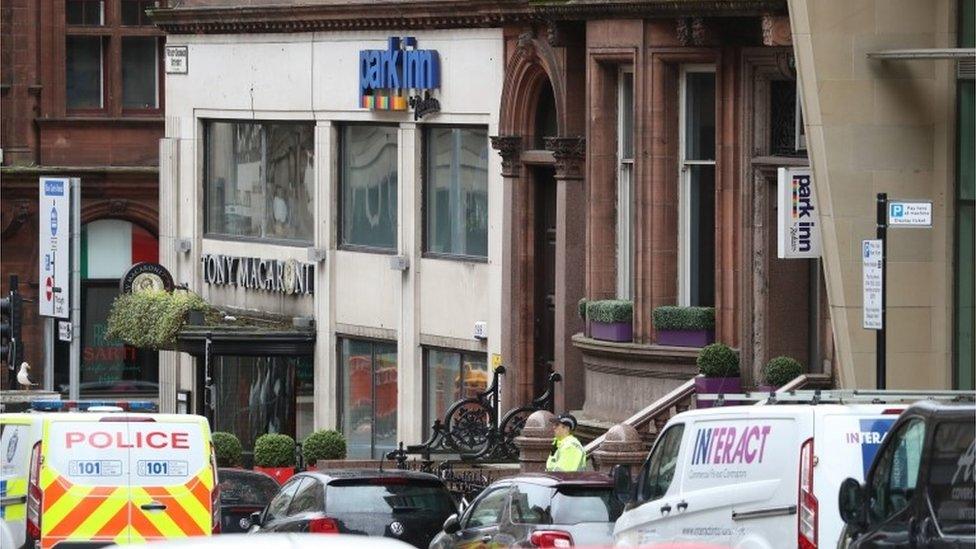
Asylum seekers had been moved into the Park Inn in response to the coronavirus pandemic
A knife attack in a hotel that was housing asylum seekers during the Covid lockdown was an "avoidable tragedy", a report has found.
Six people were stabbed during the incident at the Park Inn in Glasgow city centre on 26 June 2020.
A review, external, commissioned by Refugees for Justice, said it was a consequence of people being moved from their homes into unsuitable accommodation.
The Home Office said it had since made "significant changes".
Its contractor Mears said the accommodation arrangements it made during the pandemic followed public health advice and Scottish government guidelines.
Badreddin Abdalla Adam - a Sudanese asylum seeker - was shot dead by police after he attacked three other asylum seekers, a police officer and two members of hotel staff.
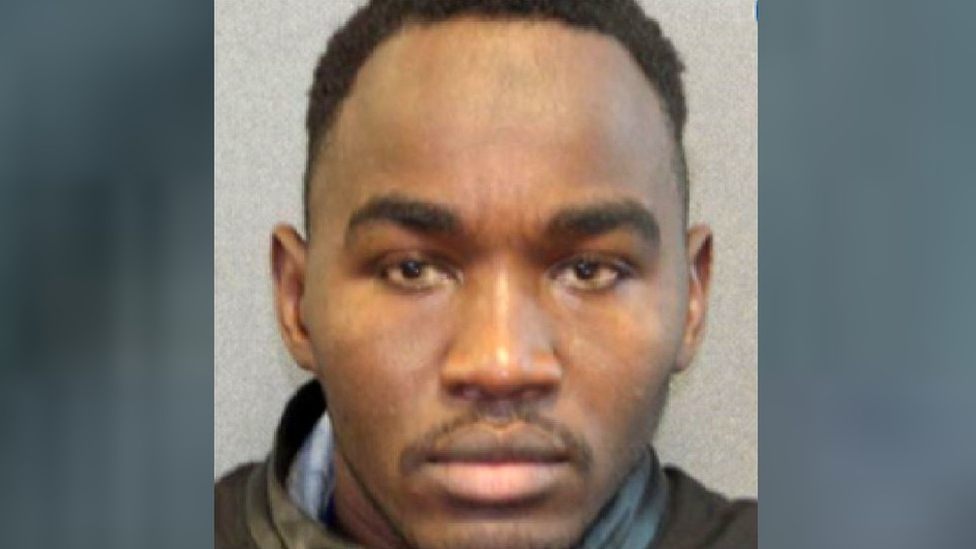
Badreddin Abdalla Adam was shot by police after carrying out multiple stabbings
It later emerged he had been struggling with his mental health during lockdown at the hotel and had called the Home Office and other organisations more than 70 times before the attack.
The inquiry, led by Baroness Helena Kennedy KC, called for Mears to set up an annual £5m fund for mental health support and trauma treatment for asylum seekers.
It also found:
The deterioration in mental health among a refugees was "striking and clear" during the pandemic and continues two years after lockdown.
Baroness Kennedy said no thought seemed to have been given to what it would mean for someone who had fled persecution to be "rounded up" and moved against their will.
Some asylum seekers went for weeks without access to vital mental health prescription medication.
No adequate assessment was carried out of the impact of the hotel moves on women and, for example, some were too embarrassed to ask male reception staff for sanitary products.
Women who had been victims of male violence and trafficking were placed in mixed hotels leaving them "afraid for their safety".
A "culture of fear" existed at the hotels with residents wary of complaining about conditions or speaking up in case it damaged their asylum claims.
Hotel staff were left to step in and provide services that were "outwith their qualifications and job descriptions'.
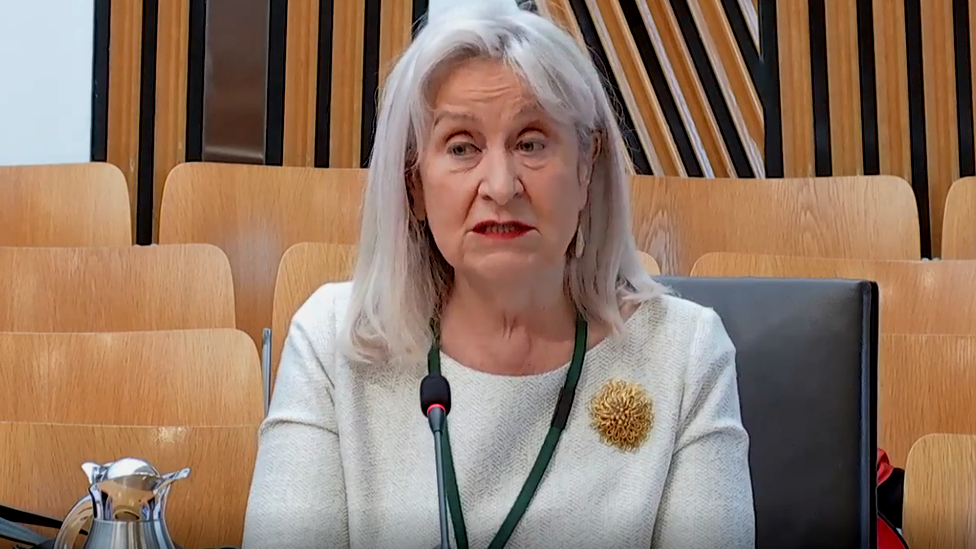
Baroness Helena Kennedy KC led the inquiry, which was commissioned by the charity Refugees for Justice
Baroness Kennedy thanked the "courageous people" who shared their stories and warned the current arrangements damage those who come to the UK in a bid to rebuild their lives.
She added: "In many different ways, these systems place people into marginalised social and economic situations, without adequate support, and leave them there with ever-diminishing hope for the future.
"For those who have experienced trauma, these same systems can compound the problem.
"We have heard countless stories of re-traumatisation and further trauma as a result of treatment in the UK by the asylum system.
She also called for the provision of services to asylum seekers to be "professionalised" and for more localised services.
Baroness Kennedy recommended the launch of an urgent statutory inquiry, with evidence-gathering and disclosure powers, into how the Home Office and its contractors met safeguarding duties to asylum-seekers during Covid, particularly in relation to moves to hotels.
The private inquiry, which was set up in June, was unable to compel witnesses to attend or force disclosure of evidence.
She accepted the report would be a "hard read" for both the Home Office and Mears Group but said the system was in urgent need of reform.
Baroness Kennedy added: "It is not good enough to rebrand housing officers as welfare officers and expect them to work skilfully with traumatised people.
"If commercial organisations are going to provide these services, that provision needs to be professionalised."
She said at a minimum Mears needed to make "material investment in the wellbeing of those in its accommodation."

'I was stabbed maybe five to six times'
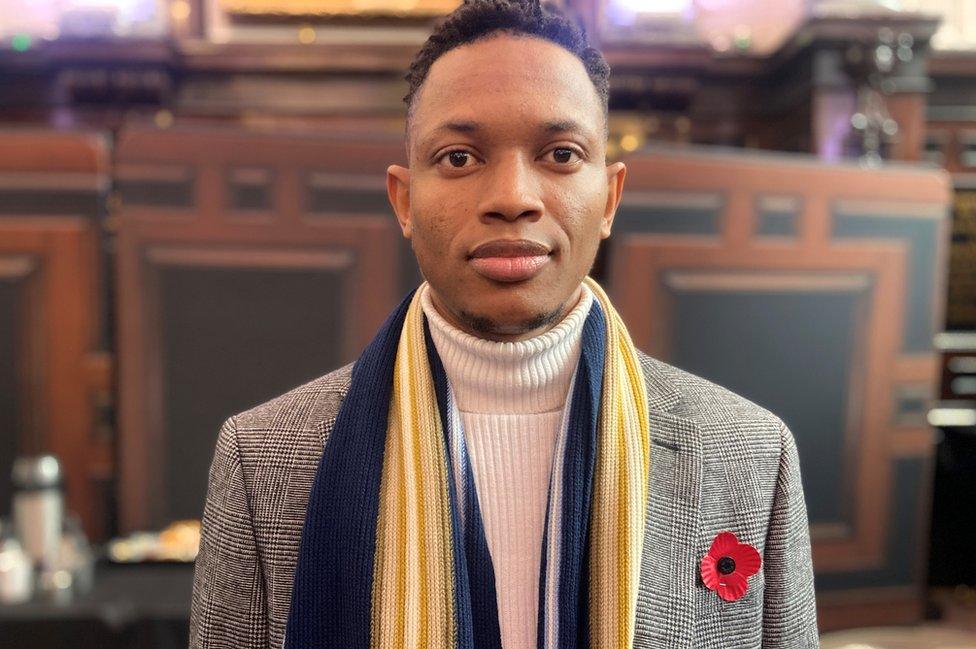
Mo was one of three asylum seekers injured in the incident
Mo was a resident at the Park Inn and was seriously injured in the frenzied attack.
He told BBC Scotland: "Two steps from my door I was stabbed. With two knives in my tummy. So I turned to notice who it was and another stab again."
Mo said a fight ensued with Adam.
He added: "I think I was stabbed maybe five to six times."
Reflecting on his experience, Mo said: "What happened to me, I don't want it to happen to anybody again.
"By doing so we need to change the system and see how best we can change some certain things.
"I know it is very difficult for the government as well but they need to change the system."

Despite the stories of trauma and distress, Baroness Kennedy revealed the inquiry heard some uplifting accounts.
She said: "We heard many stories about the kindness, care and compassion experienced by people seeking asylum in Glasgow and beyond. Care from neighbours, people in the street, civil society and activists.
"I even heard a story of a friendship that endures to this day between an asylum-seeker and the taxi driver who had been employed to move him to a hotel.
"I will never forget my meetings with people from the hotels whose warmth and humanity towards each other stood in such sharp contrast to the inhumanity to which we bore witness from the Home Office and its contractors."
'Truly horrific'
A Home Office spokesman said: "This incident in Glasgow was truly horrific and our thoughts are with those affected.
"We have since made significant changes to keep asylum seekers safe, including how we, our contractors and charities identify vulnerable individuals and ensure they are fully supported.
"We are dealing with an unprecedented increase in asylum cases but despite this we continue to ensure that the accommodation provided is safe, secure and leaves no one destitute."
Mears said similar accommodation arrangements were in place across the UK for asylum seekers at the time of the Park Inn incident.
It added those in its care were provided with a "good standard" of accommodation, three nutritious meals a day and "onsite health and welfare support".
A spokesman said: "We have now been able to reduce hotel use in Glasgow but in common with local authorities and the Scottish government, we continue to need to use hotel accommodation across Scotland.
"This is due to rising need and a shortage of suitable accommodation in the community. We are working with local authorities and others to procure accommodation as quickly as possible."
Related topics
- Published12 April 2022
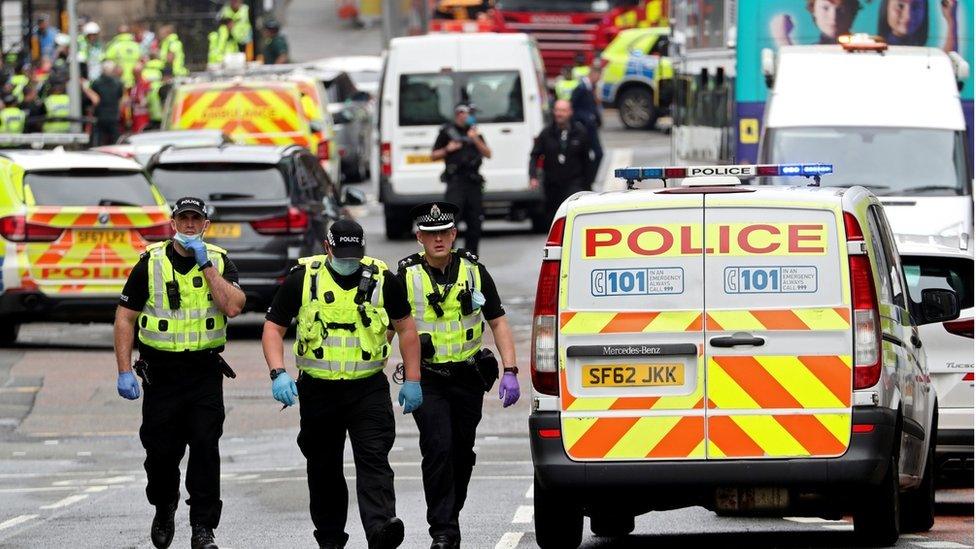
- Published14 July 2021

- Published29 June 2020
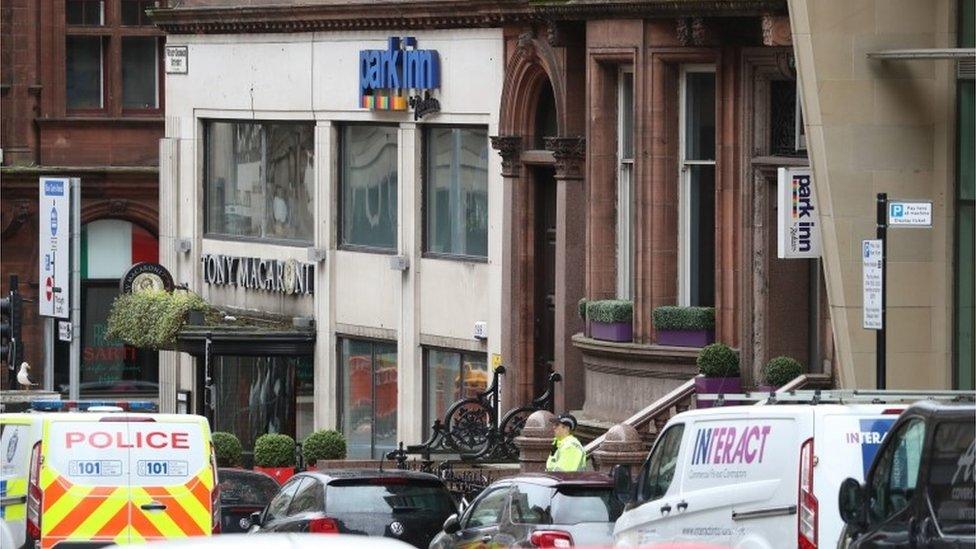
- Published27 June 2020
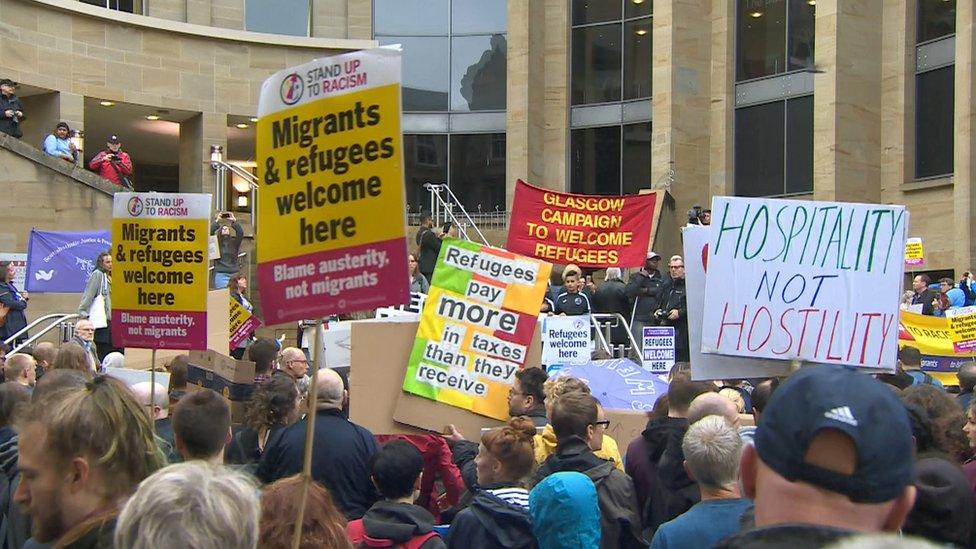
- Published26 June 2020
